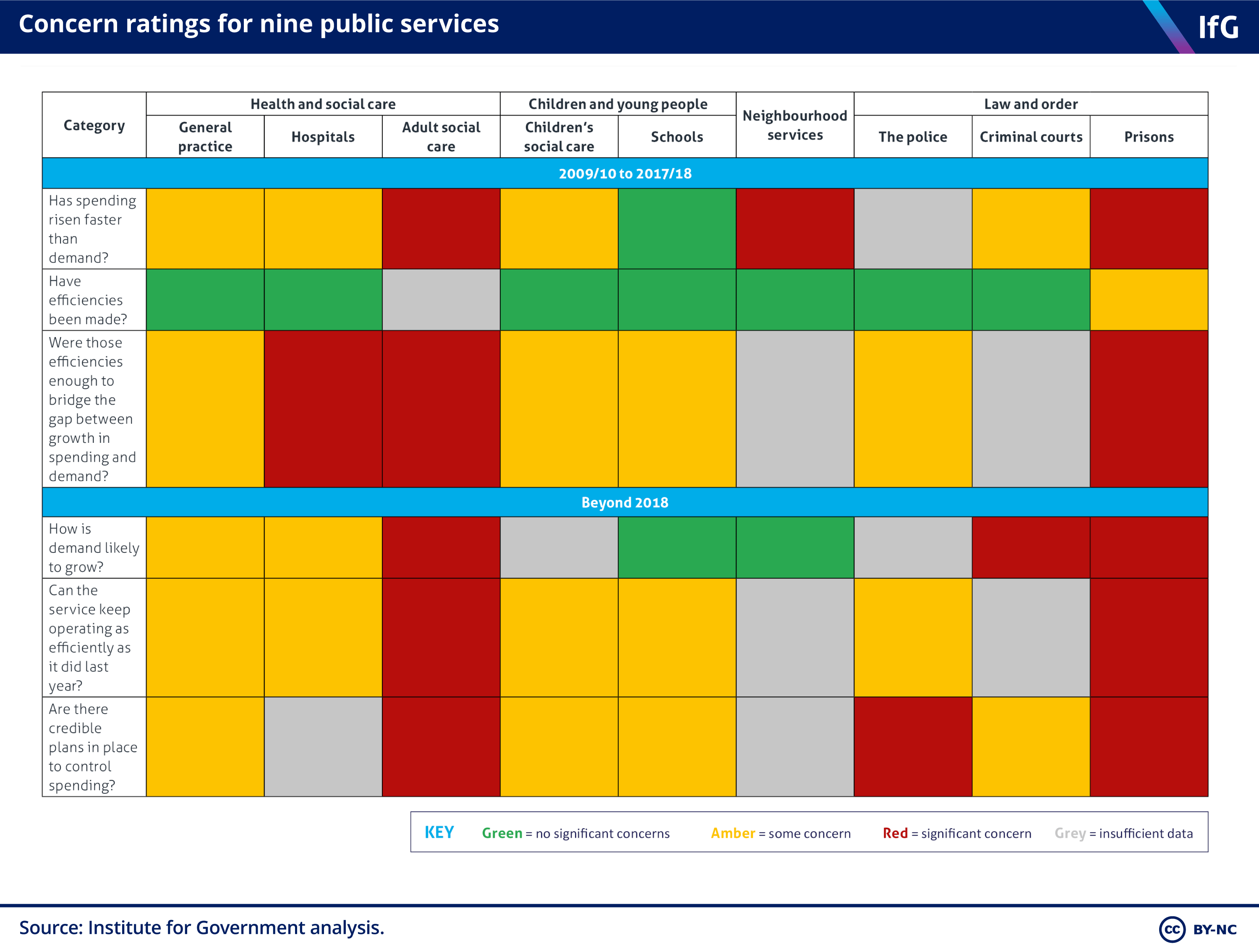Central government as well as local authorities are passing the costs of services, such as legal aid and garden waste collection, on to individuals, this year’s Performance Tracker from CIPFA and the Institute for Government think-tank has shown.
Rob Whiteman, chief executive of CIPFA, said: “Organisations have had no choice but to shift the costs on to individuals to be able to continue to provide vital services, such as adult social care. This will become increasingly common.”
Emily Andrews, associate director at the IfG, suggeted: “One way the government has tried to save money and avoid the need for tax increases is by asking members of the public to contribute more in other ways - from volunteers running libraries to people paying a greater share of the cost of defending themselves in court.”
The number of authorities charging for garden waste collection rose from 88 to 199 between 2010-11 and 2017-18, while the number offering free garden waste collection fell from 236 to 137, the report showed.
Cuts to legal aid, the report said, mean that more defendants now have to pay for their own defence or defend themselves in criminal trials.
Criminal legal aid spending fell by 32.1% in real terms between 2010-11 and 2017-18, from £1,175m to £891m in 2017-18.
The tracker report gave a ‘concern rating’ to a range of public services, saying those with the greatest issues were prisons, adult social care and neighbourhood services. [See table of concerns at the bottom of this story].
“There are clear signs that neither prisons nor adult social care can continue to operate at their current level of efficiency,” the report said.
“Any attempt to try to maintain or increase the level of output without increasing spending is likely to lead to a further deterioration in service quality.”
Prisons, despite getting more money from the 2016 Autumn budget, still received 16% less funding than in 2009-10, the tracker noted.
The report said that neighbourhood services - such as waste collection, food safety, road maintenance and libraries - have sustained the deepest spending cuts of all the services looked at.
It was “impossible to say whether local authorities can keep operating them at their current level of efficiency”.
Public satisfaction with neighbourhood services fell between September 2012 and June 2018, with satisfaction in waste collection dropping by 6%, libraries by 7% and road maintenance by 14%, according to the report.
Adult social care spending in England has fallen by 3% since 2009-10 “even though demographic change would suggest that demand is increasing,” the report said.
Police services have also been cut with net expenditure on police services in England and Wales falling by around 18% in real terms since 2009-10.
Whiteman said that if the government were to meet communities’ expectations for public services they must come up with a new sustainable funding model that would require “bolder, braver and perhaps politically-unpopular decisions”.
The tracker did find that public services had becoming more efficient since 2010, which was mainly due to the pay cap on annual public sector wage rises.
CIPFA and the IfG appealed to government to be open with the public about the challenges for public services going forward.
Gemma Tetlow, chief economist at the IfG, said: “The prime minister and chancellor must start making explicit the realities facing the country about what public services cost and how that money can be raised.
“They need to begin telling people clearly that they face a national choice.”












